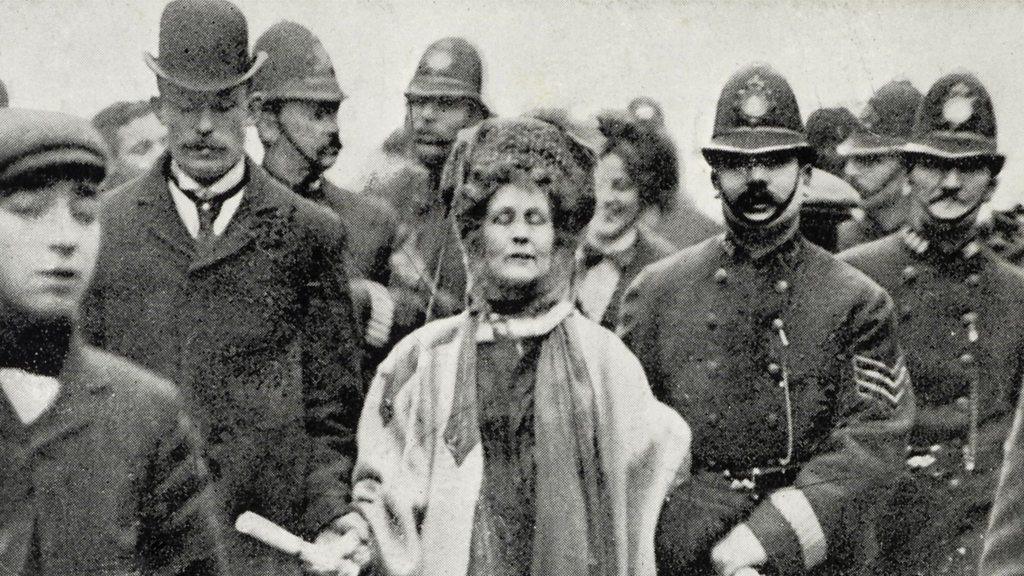Suffrage centenary: The women getting creative and going on the march
- Published
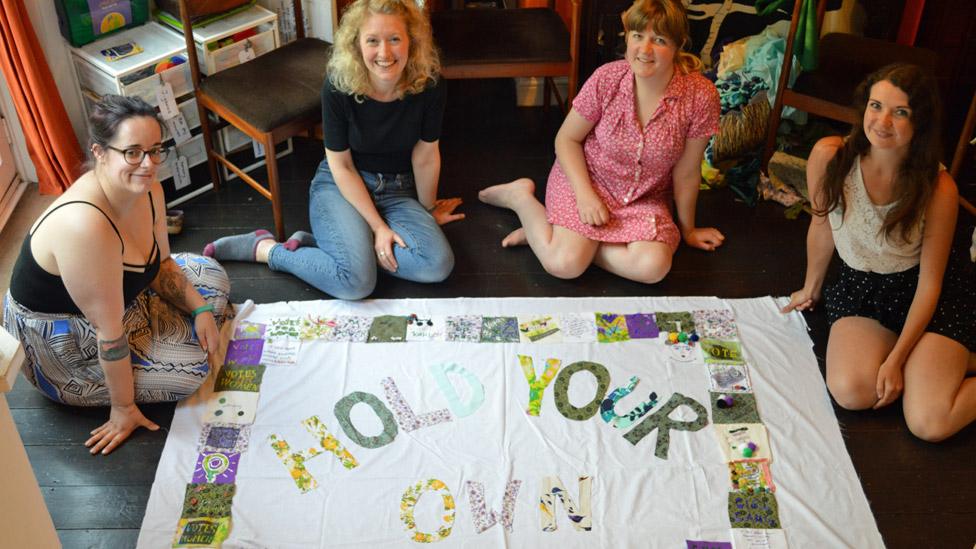
Members of Girl Gang Manchester with their "Hold Your Own" banner
On Sunday, tens of thousands of women and girls will take to the streets of the UK wearing the colours of the suffragettes and carrying creative banners bearing their messages about equality today.
The marches in London, Cardiff, Belfast and Edinburgh will mark the centenary of some women getting the vote - but are also intended, according to organisers, "to create a living artwork".
One hundred groups up and down the UK have been paired with artists to create their own modern-day protest banners for Processions, which will be shown live on BBC One.
Here are some of the women, and their banners.

'Hold your own'
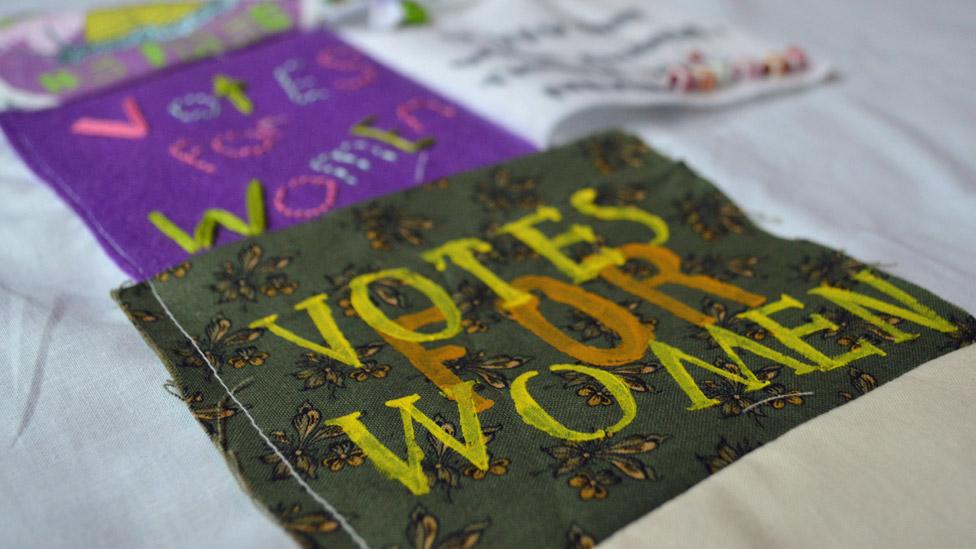
A "Votes For Women" patch on Girl Gang Manchester's banner
In a dining room in suburban Manchester, large letters spelling the words "Hold your own" are being cut out of patterned cloth before being sewn on to a white sheet.
Around the edges are patches with separate slogans, such as "No one way to be a woman" and "Take up space", which have been crafted by members of the public at workshops run by Girl Gang Manchester.
This is the banner that members of Girl Gang Manchester will proudly carry on Sunday.
Project leader Amy Hughes Sykes says: "What appealed to me was not just the creative side of it, but opening something up to the whole Manchester community to represent their pro-female hopes and wishes creatively on a single banner, and for that to be part of this mass national artwork."
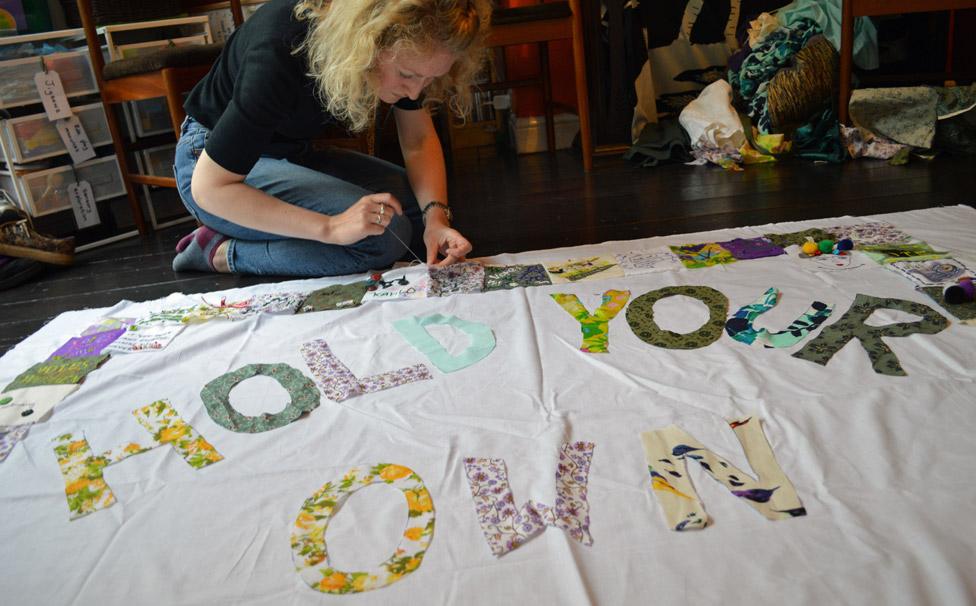
Girl Gang Manchester artistic director Megan Marie Griffith says that, after much deliberation, they decided the "Hold your own" slogan was the most suitable message.
"A lot of the work we do is giving people confidence in their own viewpoint and the conviction to stand up for what they believe in and to call out injustices where they see them," she says. "Women are so often taught self-doubt.
"We also liked it because 'your own' also means those around you, and having compassion for your community. The idea of holding each other."

'Make more noise'
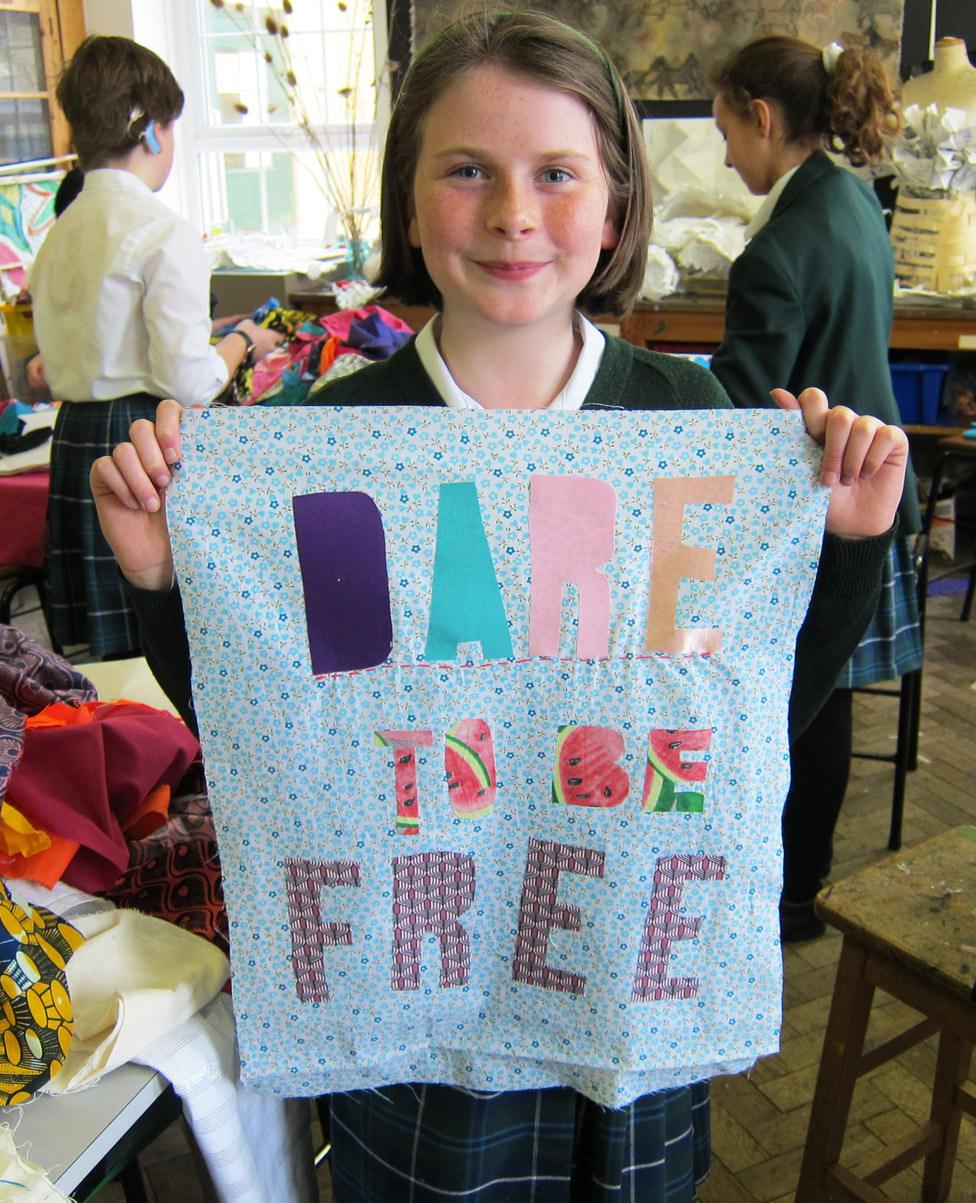
Jasmine, aged 11, from Bruton School in Somerset, made a banner reading "Dare to be free"

Around 100 people who have helped make banners with Somerset Art Works will be up at the crack of dawn to take their creations to the march in London.
They include students from Strode College - whose banner, made with artist Dorcas Casey, bears the slogan "Make more noise", a quote taken from a speech by Emmeline Pankhurst.
"It's a call for women to be more visible, to make a spectacle, to make their voices heard, and that's very relevant today, as it was 100 years ago," says Somerset Art Works project manager Beccy Swaine.
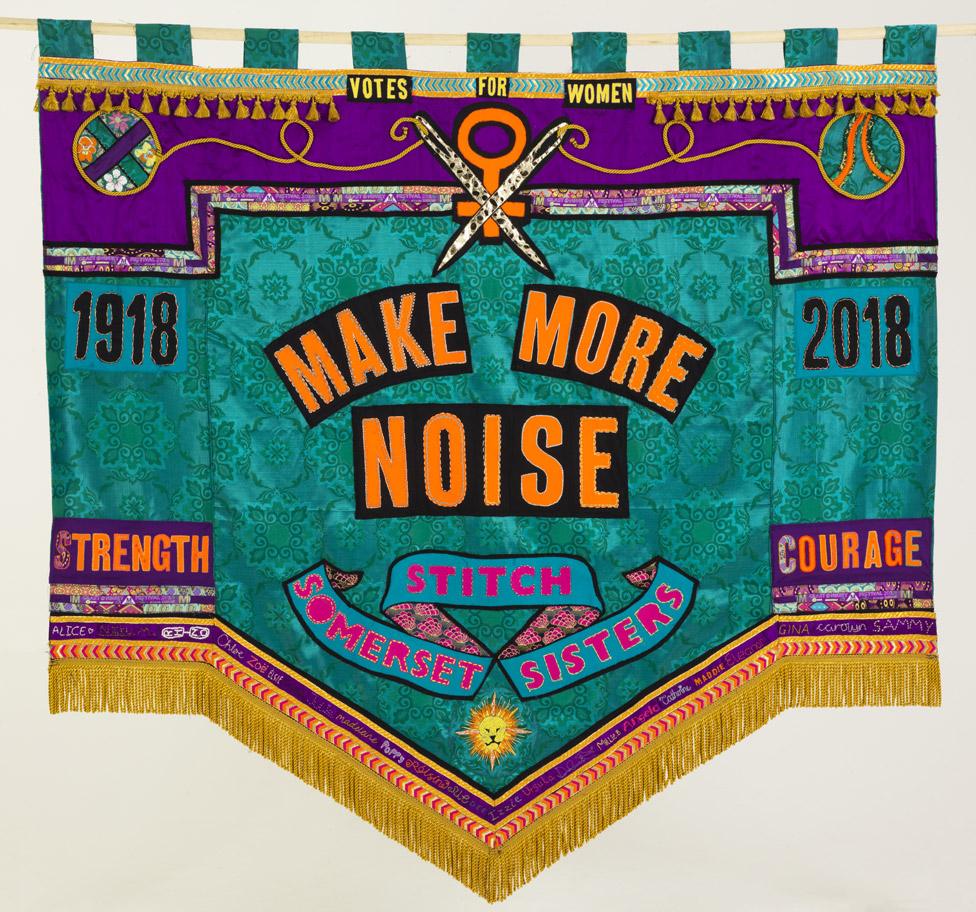
Somerset Art Works banner reading "Make more noise"

For their banner, young women at Richard Huish College, in Taunton, chose Dame Millicent Fawcett's words: "Courage calls to courage everywhere."
Swaine says: "We have to leave [for London] super-early in the morning and these are students who are mostly in the middle of their exam periods.
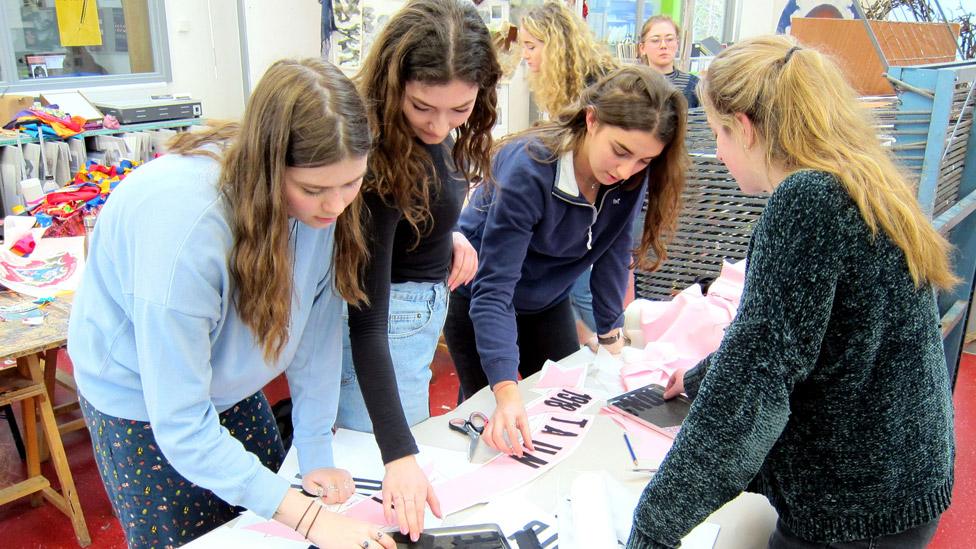
Students from Richard Huish College preparing their banner
"But they are taking that time because they feel it's really important to be part of something that's really significant, and something that's celebratory but also commemorating and acknowledging the women 100 years ago.
"It's recognising and commemorating what they did, looking at where we are now, and acknowledging we've still got quite a long way to go regarding equality."

A masterpiece reinvented
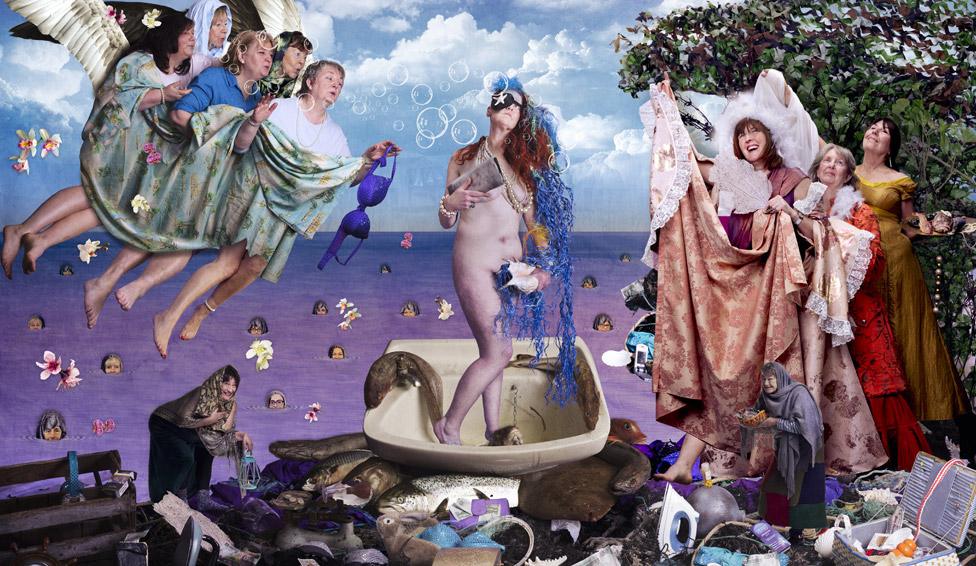
For her banner, artist Rita Duffy has reimagined Botticelli's The Birth of Venus with women from the Ards Peninsula in County Down.
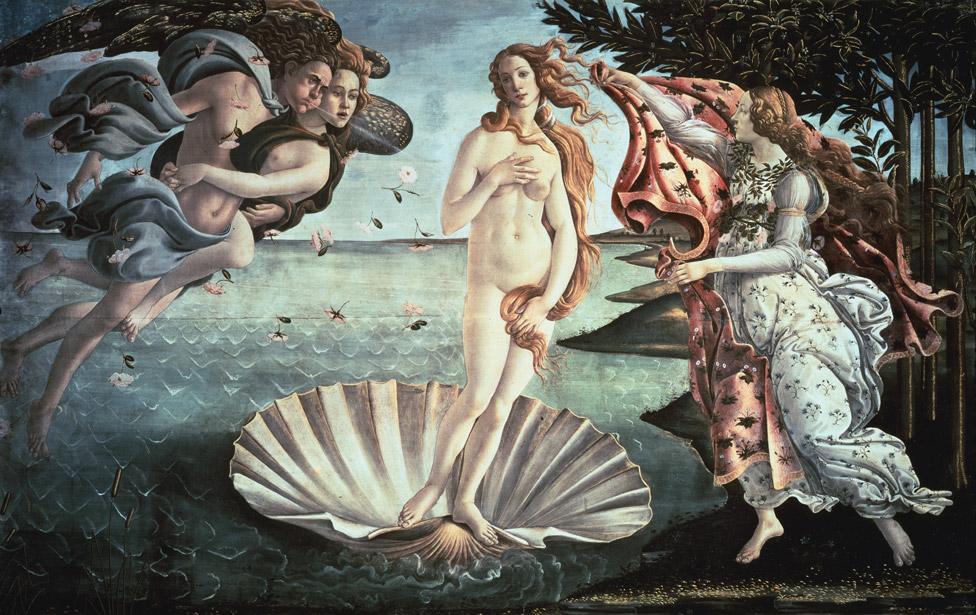
Instead of Venus emerging from the sea, Duffy has her emerging from a sink, with plastic from the ocean tangled in her hair.
"I was thinking about the tyranny of beauty that still crucifies women internationally," the artist says. "It has replaced religion in lots of ways for women across the world."
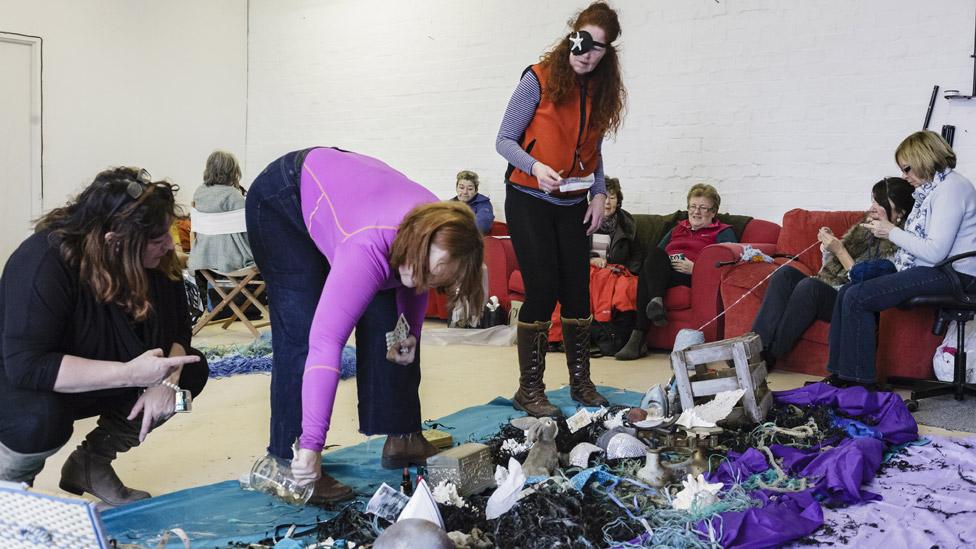
She was put in touch with her volunteers and models through the Institute for Conflict Research and borrowed costumes from Belfast's Lyric Theatre. They will take the banner to the city's march.
"One of the big statements I like to think that banner is making is that older women become invisible because they no longer have a 'value' in this patriarchal society, but they literally are the backbone of the society," Duffy says.
"Generally the flavour and pattern of that painting was quite inspirational, so thank you Botticelli!"

'Voteless not voiceless'
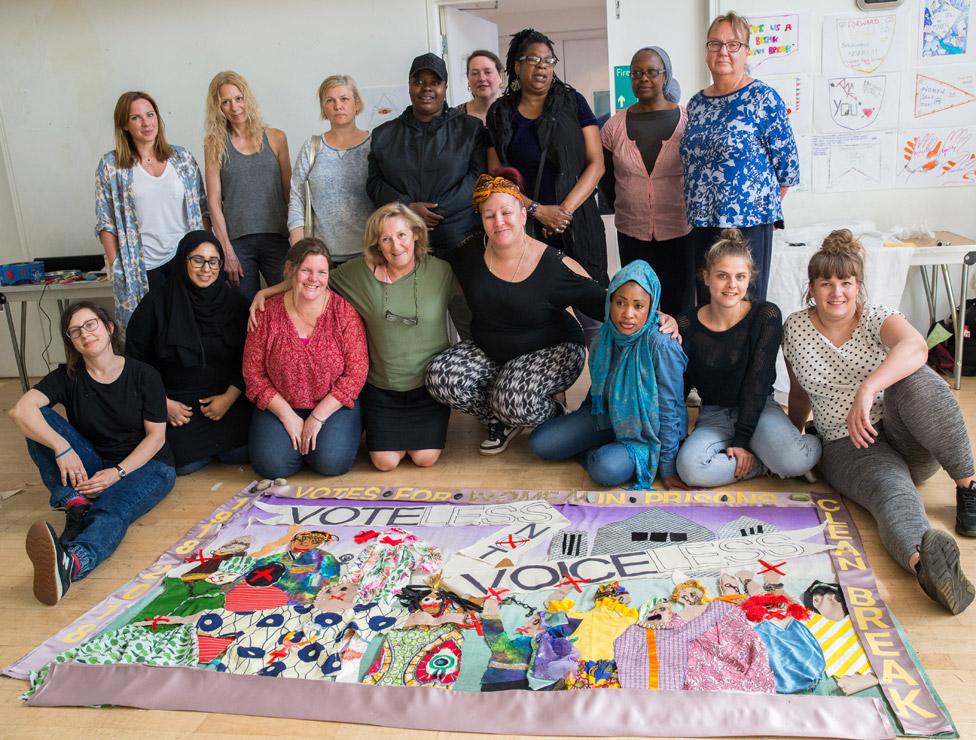
Women in the criminal justice system worked with Clean Break theatre company and designer Miriam Nabarro to make a banner reading: "Votes for women in prisons. Voteless not voiceless."
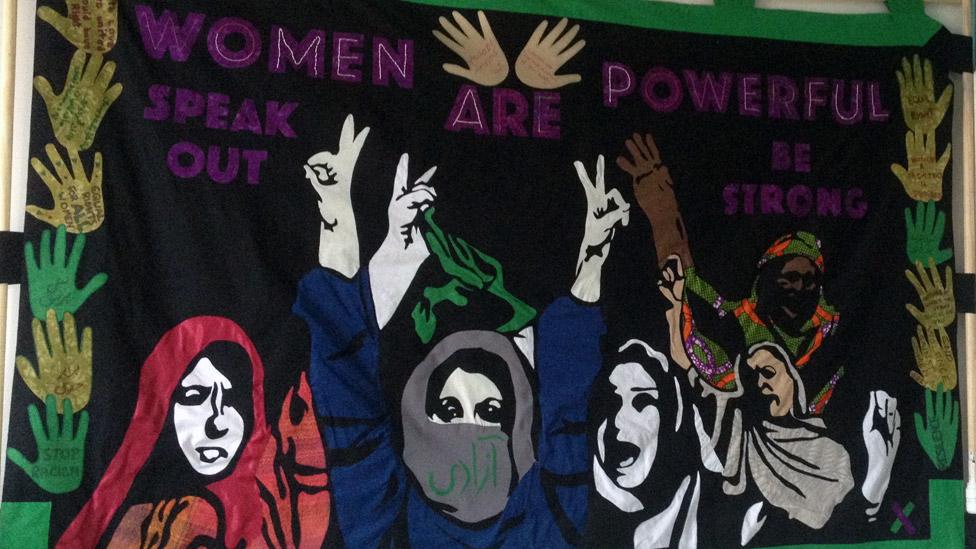
Women from the refugee community in Glasgow worked with Iranian artist Paria Goodarzi and the Scottish Refugee Council to make a banner reading: "Women are powerful. Speak out. Be strong."
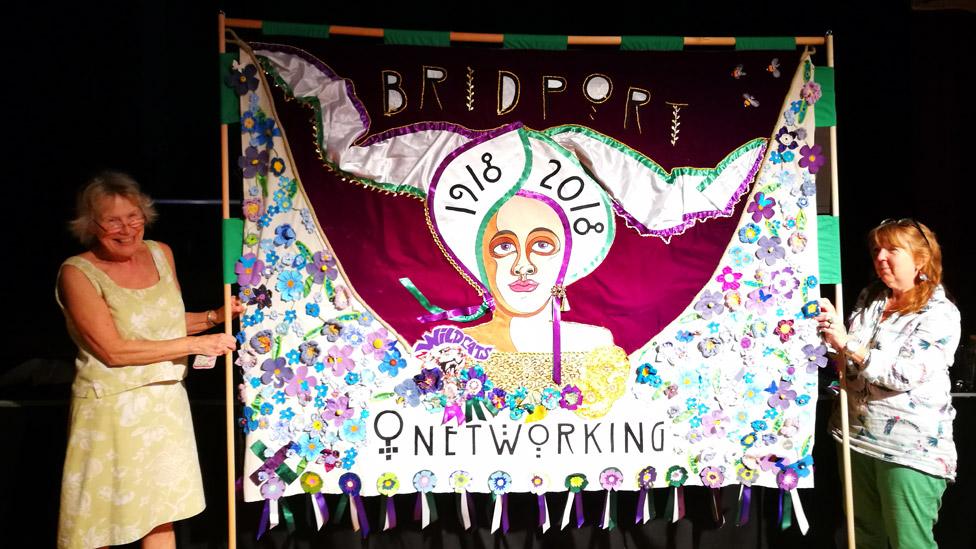
The banner from Bridport Arts Centre in Dorset remembers the Bridport Wildcats, female factory workers who went on strike over pay and conditions in 1912.

'All about empowerment'
"A banner says on the outside what you feel on the inside," says Helen Marriage, director of Artichoke, which has organised Processions and other large-scale outdoor arts events.
The banners that will be held aloft on Sunday will be in the tradition of those carried by the suffragettes at huge rallies more than a century ago - but with a "contemporary twist", she says.
"It's all about a sense of empowerment. I think nobody would say that gender equality has been achieved and it's about women standing up and expressing what it means to be a woman in the 21st Century, whether you're 16 or 92."
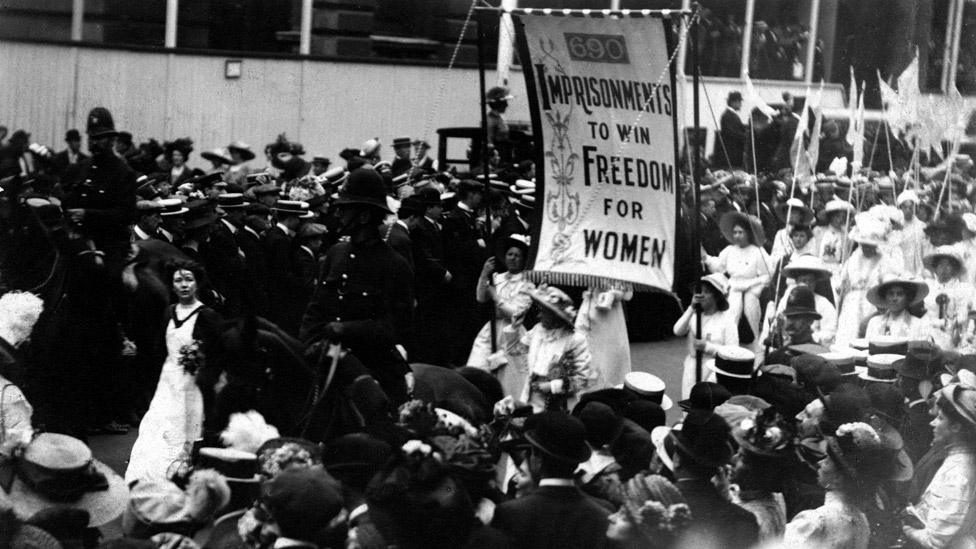
A banner being carried at a suffrage procession in 1911
Marriage says the aim of Sunday's event, which was commissioned by 14-18 Now, the programme of World War One centenary art commemorations, is "not just to do a demo or parade, but to create a living artwork".
All participants will wear the colours of the suffragettes, green, white and violet (chosen because their initials stand for Give Women Votes).
"So you'll see this moving sea of colour occupying the ceremonial streets of those four political capitals."
While 100 groups have been officially commissioned to make banners, there will be lots more. "Somebody told us the other day that their local craft shop had run out of green and purple tassels, so we're suspecting that thousands of people are actually making their own."

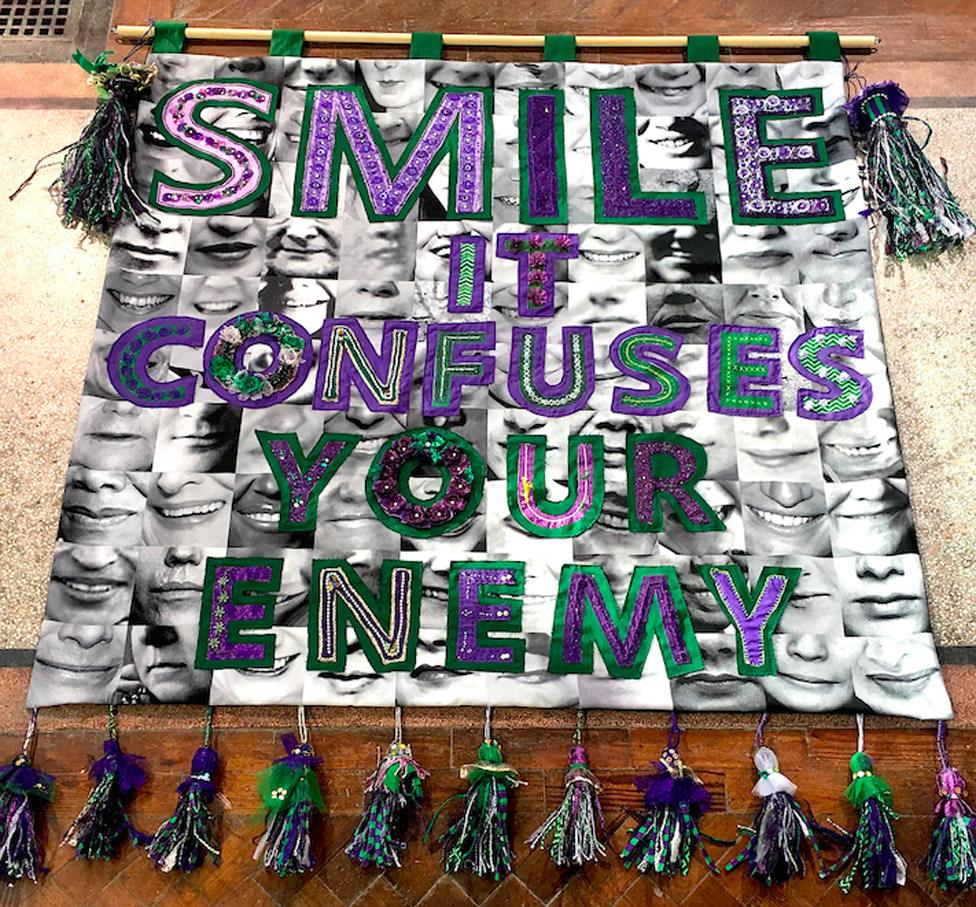

"Smile it confuses your enemy" was the "battle cry" chosen for the banner made by women in Bolsover, Derbyshire, with Junction Arts and textile artist Karina Thompson.
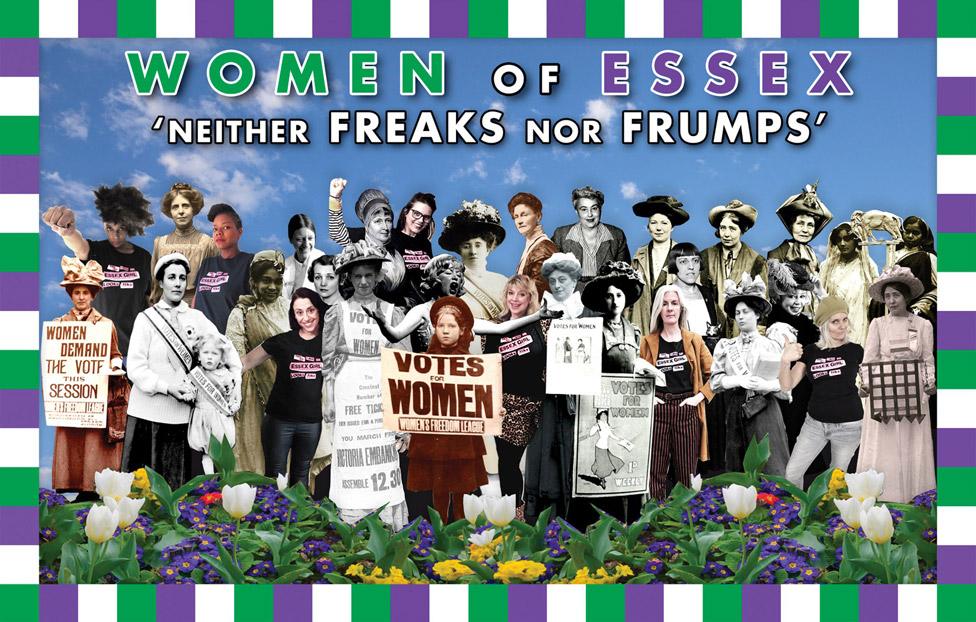
This Women of Essex banner, made with artist Heidi Wigmore and Metal Culture in Southend, uses the words of a speaker at a suffrage meeting in Colchester in 1908, who declared that campaigners for women's votes were "neither freaks nor frumps".
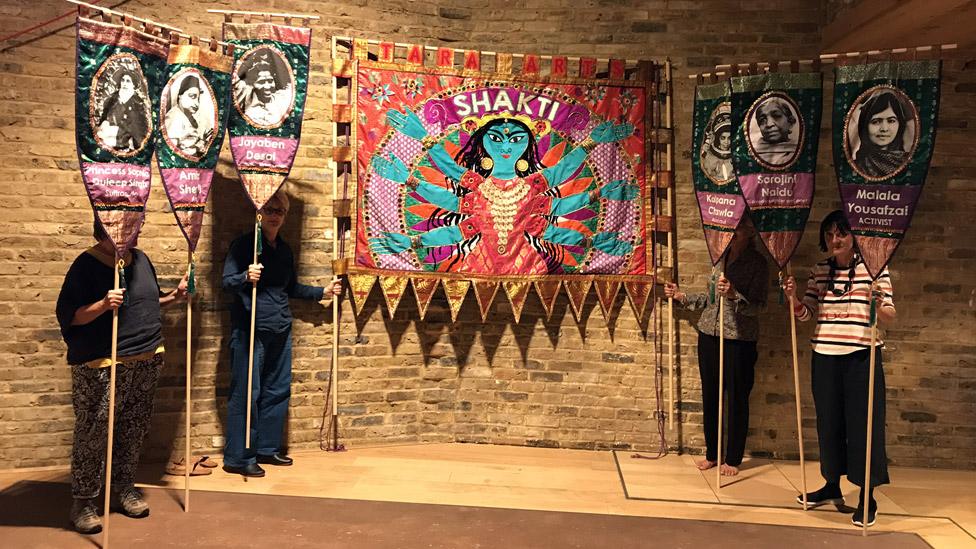
Tara Arts in south-west London have designed one central banner and six accompanying pennants decorated with iconic Asian women, including Malala Yousafzai and suffragette Princess Sophia Duleep Singh.

Follow us on Facebook, external, on Twitter @BBCNewsEnts, external, or on Instagram at bbcnewsents, external. If you have a story suggestion email entertainment.news@bbc.co.uk, external.
- Published4 March 2018
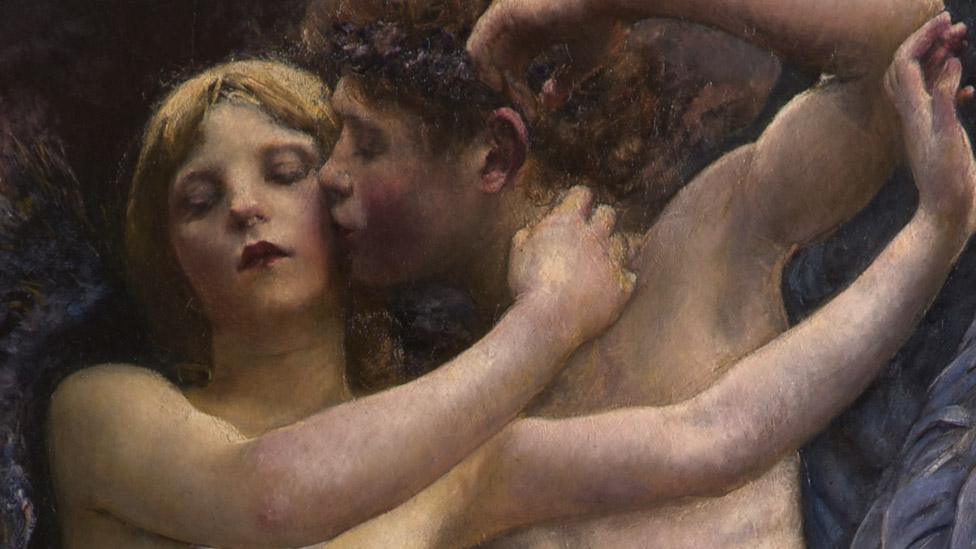
- Published2 February 2018
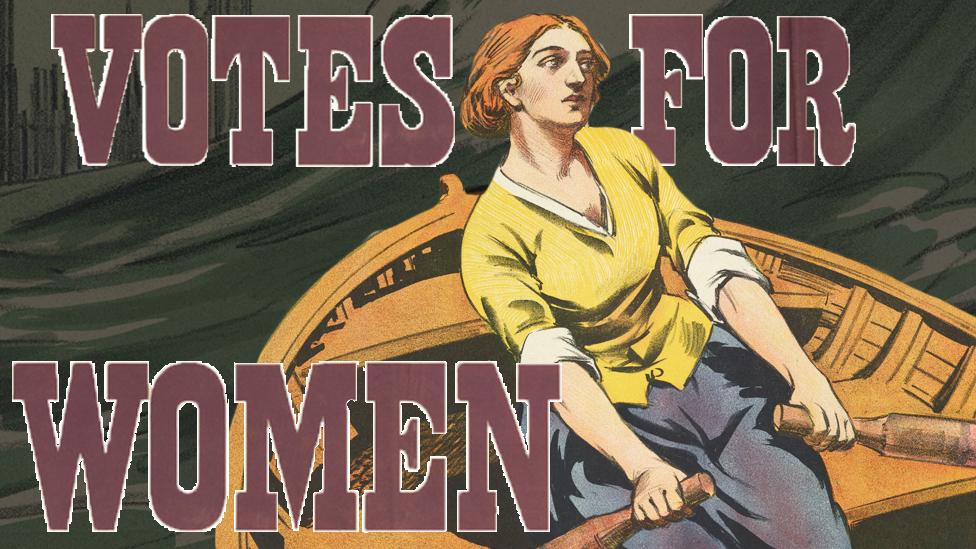
- Published7 February 2018
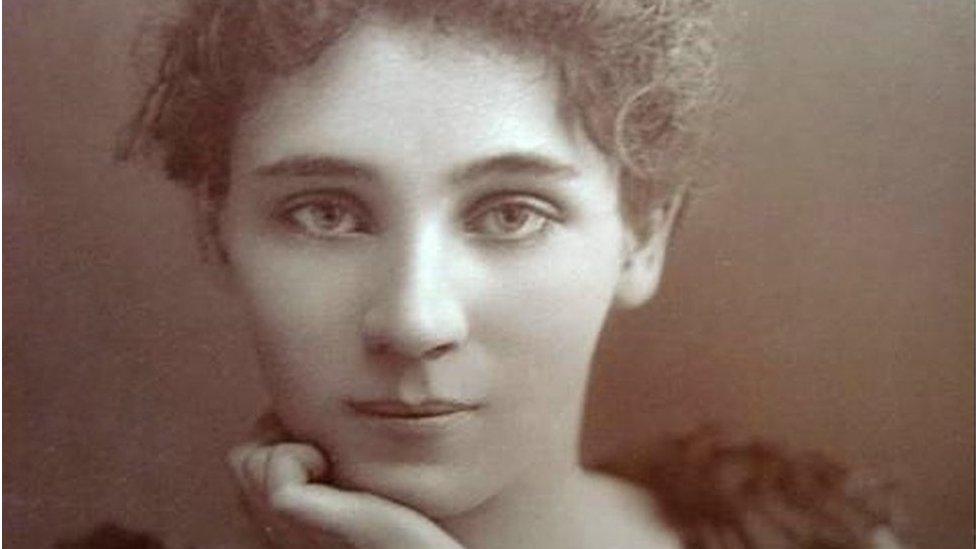
- Published6 February 2018
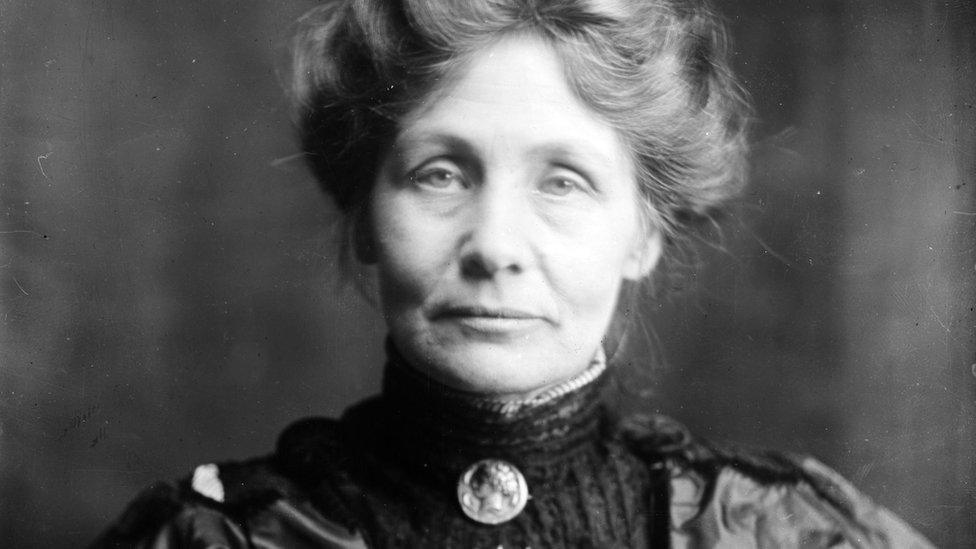
- Published6 February 2018
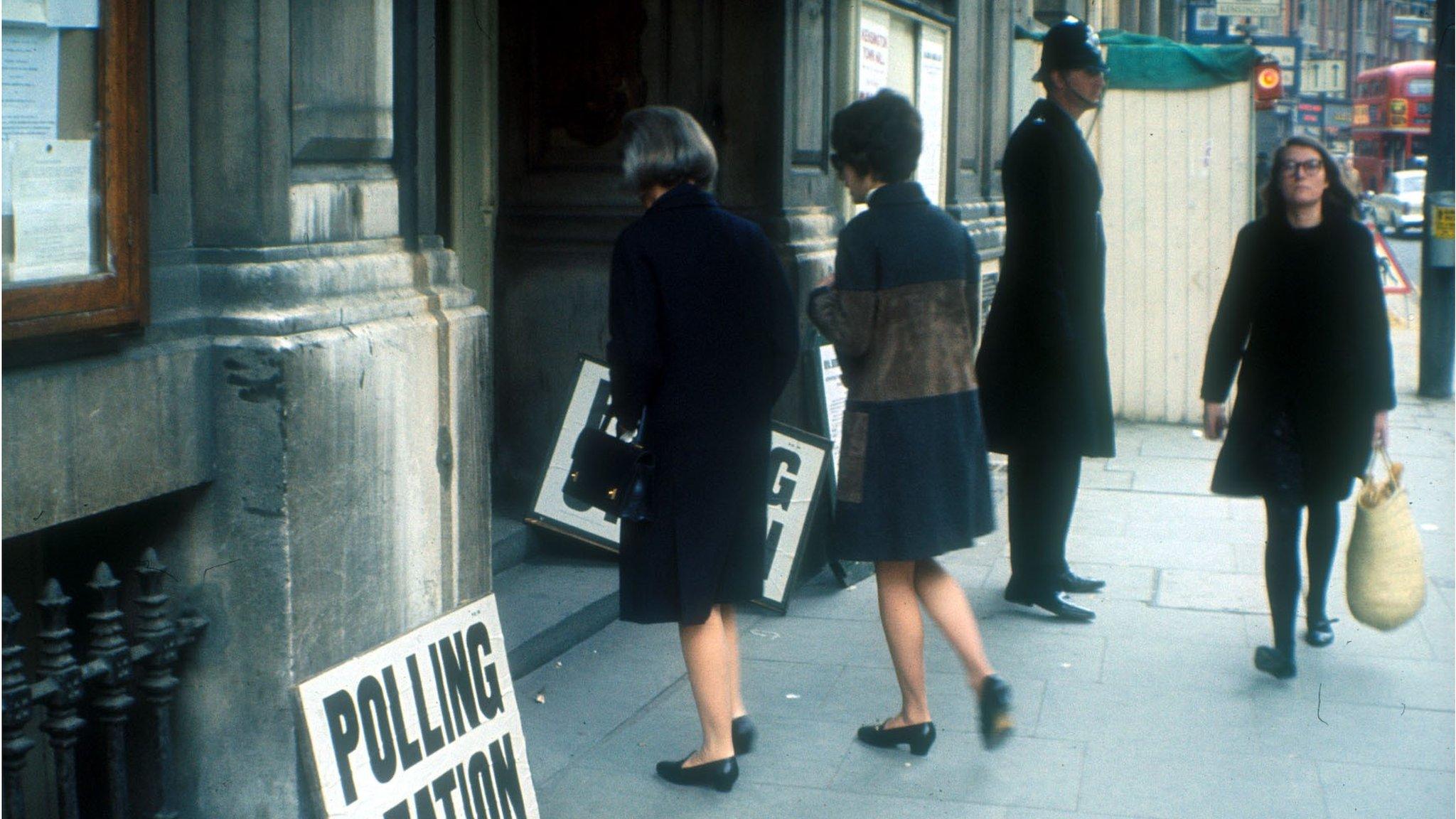
- Published5 February 2018
